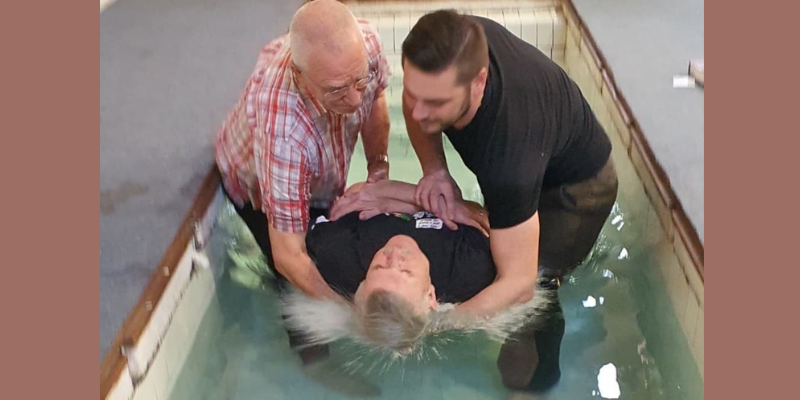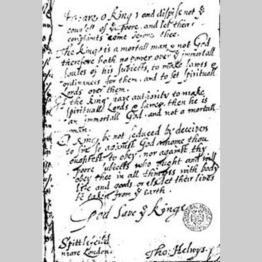Who are the Baptists?

400 years ago, the Bible was beginning to become widely available and a larger number of people were able to read it for themselves. Some Christians became unhappy with the power that the King had to not only govern the laws of the land, but also govern the way in which people worshipped God. Thomas Helwys began the first Baptist Church in Spittlefield, London. In a bold letter to James I Helwys wrote that “King of England could command what of man he will, and we are to obey it," but, concerning the church — "with this Kingdom, our lord the King hath nothing to do."

This heartfelt request to separate Church from State – that people should obey the Law of the Land, but be free to worship God in the way believed appropriate, lead to his imprisonment as a dangerous person intent upon destabilizing the country. Whilst in prison Helwys died.
Others took up his cause, believing that baptism should be something which should happen when a person was at an age able to decide for themselves that following Jesus was their intention, and not have beliefs forced upon them.
A significant number of Christians around the country agreed with Helwys and from the first congregation formed in London the Baptist movement spread across the country.
Many persecuted Baptists took the opportunity to escape to America, whose constitution adopted similar principles of separation of church and state, and freedom to believe as conscience dictated. It is therefore not surprising that Baptists were at the forefront of the civil rights movement, and other significant causes where freedom and justice lie at the heart.
Although each Baptist Church, including Ross, has been founded, financed and governed locally, in Britain our churches now join in association with one another to pool some of their resources, and to ensure that affluent churches support those operating in more deprived areas. We also ensure that each church holds to our shared principles.
The beliefs which govern Baptist Churches are set out in a simple form called the Declaration of Principle
-
That our Lord and Saviour Jesus Christ, God manifest in the flesh, is the sole and absolute authority in all matters pertaining to faith and practice, as revealed in the Holy Scriptures, and that each church has liberty, under the guidance of the Holy Spirit, to interpret and administer His laws.
-
That Christian Baptism is the immersion in water into the name of the Father, the Son and Holy Spirit, of those who have professed repentance towards God and faith in our Lord Jesus Christ who ‘died for our sins according to the Scriptures; was buried, and rose again on the third day’.
-
That it is the duty of every disciple to bear personal witness to the gospel of Jesus Christ, and to take part in the evangelisation of the world.”
The differences which years ago divided us from the established Christian denominations have largely evaporated and we now work closely with our friends in the Anglican, Methodist, Catholic and Free churches, though we are still proud of our principled historic roots.
Further information can be found on the Baptist Union of Great Britain website.